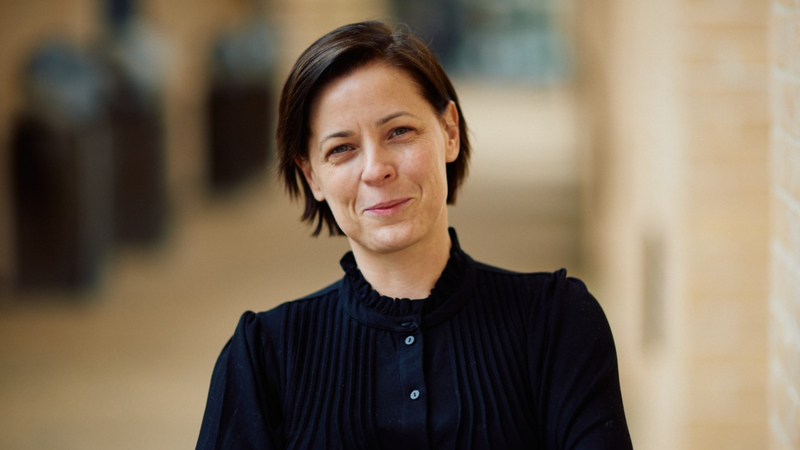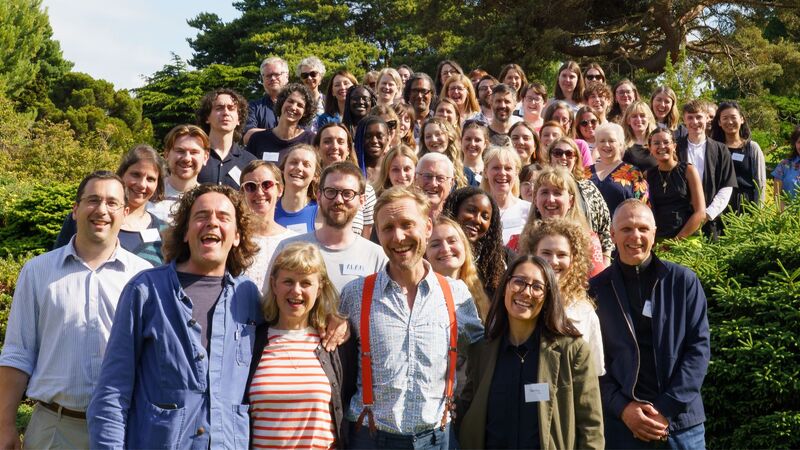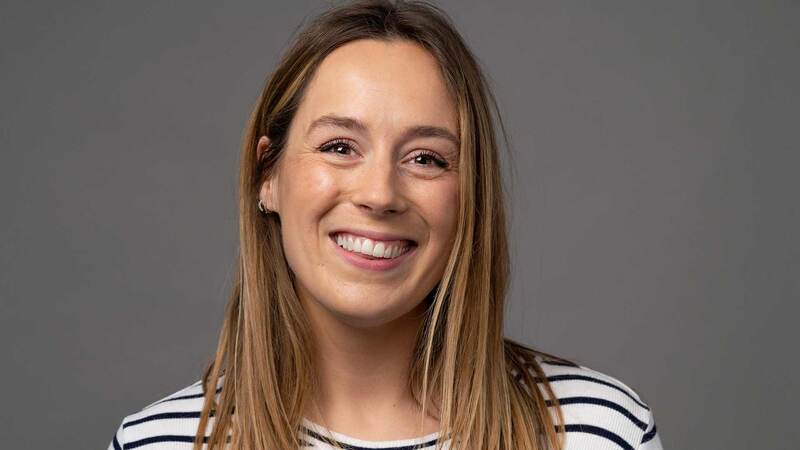You are viewing your 1 free article this month. Login to read more articles.
Back to black for Canongate
Canongate Books returned to profit in 2015, after a poor performance led to losses a year earlier. The result comes after a restructuring of the business which saw Jenny Todd promoted to publisher, the launch of separate live events business Letters Live and a breakout year for author Matt Haig.
Todd (pictured), who joined the business 11 years ago from Penguin, told The Bookseller the result was the culmination of “a lot of hard” work across its 40-strong team and the publisher’s commitment to making the business less reliant on a few break-out titles.
The result is a reversal of fortunes for the publisher: in 2014 it reported sales of £7.9m, but made a pre-tax loss of £1.3m. In the 12 months to end 2015, its sales rose by 6.7% to £8.4m, with a pre-tax profit of £121,000. The company described it as a “solid performance” across the board, but with Haig’s Reasons to Stay Alive, a hardback hit during 2015, the standout title. He also published a successful children’s title: A Boy Called Christmas. Frontlist sales were up 21.5% to £3.8m, and while backlist sales fell 6.2%, rights income and digital sales both grew.
Todd told The Bookseller that 2015 was a pivotal year for the business, with the group split into distinct units: publishing and operations. Todd took charge of the publishing side and Kate Gibb, finance and operations director, the operational side. Jamie Byng became chief executive, with Todd and Gibb both reporting to him.
The company also launched the separate business Letters Live during the year, in partnership with film and television production company SunnyMarch, co-owned by actor Benedict Cumberbatch.
Todd said the restructure was carried out partly because of how her and Byng’s roles had changed within the company. “The changes weren’t driven by 2014 or the business climate, but by how the company had evolved. My role had changed and Jamie’s role had evolved. Naturally we couldn’t be doing things exactly as we were, or we wouldn’t be moving forward.” Todd said it would be untrue to say that Byng was less involved in the business since the restructure, stating that he, along with publishing director Francis Bickmore and Todd, took the publishing decisions together.
But she also stressed that teamwork was an important part of the company, and that this was perhaps less visible to the outside world. “There are only so many ‘rainmakers’ in a business such as this and it can be difficult if you put your energy in the wrong place, but this year, as well as in 2015, we’ve been really focused. The publishing has been strong and the sense of teamwork here has been enormous. You can’t scale a book to any level unless the whole team is impacting on it.”
Todd pointed to the consistency of Canongate’s publishing outside of the bigger titles. “Our list is very eclectic. You always have breakthroughs, but you also need consistency underneath that. We had a big autumn—nothing was huge, but everything was strong and performed to the level we expected it to.”
Todd also highlighted the company’s focus on its authors, with the 40 to 50 books it publishes each year often coming from authors already on its list, and often writing in different genres. She cited Haig as a good example, having switched from adult fiction, to non-fiction, and children’s. “It’s all about authors, building and breaking authors. I don’t look at the list in terms of books, instead I look at the authors and the total value of what they do. The investment and time to break an author is quite long, but it won’t come unless you are prepared to put in the hard work.”
Todd said the success of Haig’s children’s book would also help the publisher move into that genre. “We are led by our authors. We will move into children’s publishing because the right authors have delivered the right books. We don’t want to do it because there is a pressure to fill a list, because then the quality will drop.”Todd singled out Scarlett Thomas, whose children’s book Dragon’s Green is to be published in April 2017 as part of a series called The Worldquake Sequence.
Todd said the company would also continue to think of non-traditional projects, citing Nick Cave’s Sick Bag Song and its Letters Live event series as examples of innovation. Cave’s Sick Bag Song, which Canongate sold direct through a dedicated website, with the paperback not released generally until this year, was the firm’s second biggest seller in 2015 by value. Letters Live has so far run 21 events, and 10 to date in 2016.
Todd said: “Jamie and I are constantly looking ahead, we are constantly moving forwards—there is always more we want to do. It is interesting to broaden what you do as a publisher, and it has opened up a lot of opportunities for us. It is also about brand extension.”
But she said that the publishing remained key. “Publishing well isn’t easy, it takes a lot of time and attention to detail. The people at the top of this business are also the publishers—so we take it personally when things don’t work.”
Canongate is still well short of its historical high-water mark, when annual sales topped £10m, with profit upwards of £1m. But Todd said that the plan was to grow the company incrementally, and that it was looking for a return to “standard” levels of profitability. “We are more interested in profit than turnover. We plan to invest in more authors. We can grow through our publishing, getting even better. We are looking to grow, but it will be incremental. We like joint ventures, and we look for different publishing models. Being an independent we can be flexible contractually.”
She said that getting the business back on track after 2014 had been important. “It’s not easy being an independent publisher in the market right now, so I’m very proud at how we’ve kept the business stable and evolved the lists. We are not surrounded by a safety net, we are at the coalface, but that is also what makes it great. We have had a strong autumn, we have been planning further ahead, and we are publishing at a higher level. We are having a really good year so far.”
She also highlighted the business’ ability to surprise, it being a small press with generalist approach to publishing. “People often ask me, ‘What is a Canongate book?’ I say, ‘Never assume you know what a Canongate book is, just submit it to us and we’ll tell you if we all love it—then it’s a Canongate book’. There is no compromise here on the commercial side. We don’t sell our boutiqueness and we are not low in ambition commercially just because we are small. At auctions we might go in as the wildcard, but we often come out with the book.”
The company said its cash position was strong and that it continued to invest substantial amounts of money in new acquisitions. It has also invested
in staffing during this period, recruiting Jenny Fry as director of communications and Neal Price as sales director. Todd said: “We talk a lot about ‘who we are’, and it comes from the 40 very opinionated people we have, with their varied voices. You can call it the brand, but I prefer the word personality.”


















